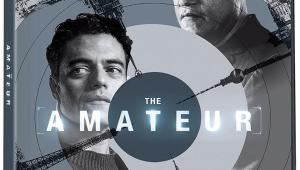Industry News Roundup
The burgeoning market for digital television is being hindered by an increasing number of reports of radio-frequency interference from DTV transmitters. Although DTV is a "technology that is finally beginning to boom," according to a July 16 report from Reed Business Information, some broadcasters, in particular Paxson Communications, have complained about interference problems. Consumers who buy digital televisions are still disappointed by the skimpy high-definition programming offered by their local broadcasters. DTV's picture for the near future therefore remains unclear.
The digital transition is also causing unforeseen interference problems, with HDTV transmissions causing spotty analog reception for viewers in some parts of the country. Paxson Communications has presented several complaints to the Federal Communications Commission over interference problems as new digital transmitters go into operation. On June 11, Paxon's WBOC-TV, channel 16 in Salisbury, MD, filed a complaint with the FCC about interference from WHRO-DT in Hampton Roads, VA, across the Chesapeake Bay on Maryland's Eastern Shore. Four months earlier, Paxson had complained that its KSPX-TV in Sacramento, CA, was suffering interference problems from CBS affiliate KPIX-DT in San Francisco. Both stations are on channel 29. The FCC did not anticipate interference problems over such great distances when channel assignments were made, and has stated that it would like stations to resolve their problems privately.
April sales of digital television receivers are up 134% over the same month in 2001, according to the most recent statistics from the Consumer Electronics Association (CEA). Even so, high-def programming is available on only a few satellite channels, with cable systems sluggishly and reluctantly beginning to offer a trickle of digital programs. The nation's 10 largest cable television service providers have committed to offering digital programming during at least 50% of their prime time schedule by January 1, 2003.
CEA president Gary Shapiro has once again called upon the FCC to pressure cable providers to supply digital signals. In Shapiro's view, that would expedite the DTV rollout far better than requiring manufacturers to include ATSC tuners in new TV sets. A DTV tuner requirement "would force consumers to pay exorbitantly for function that overwhelming majority of Americans don't need, use or want," Shapiro said on July 15, noting that "more than 70% of Americans'" get their primary video signal from cable. Shapiro said he believes that FCC Chairman Michael Powell is under "intense pressure to try to respond to the needs of broadcasters," even though fewer than 10% of Americans use an antenna for over-the-air TV reception. In cooperation with broadcasters, the CEA backed an antenna-use promotion that lasted five years. The effort did almost nothing to change viewers' habits, Shapiro said.
As part of its anti-piracy campaign, the film industry is hoping to soften its adversarial relationship with the computer industry. On July 18, Motion Picture Association of America's (MPAA) Jack Valenti issued a letter to the chief executives of major computer companies and chipmakers, suggesting a summer summit meeting to resolve copyright issues. "We are ready to begin the talks immediately, with . . . trust in each other's commitment to move swiftly to resolve whatever chasms may exist," Valenti wrote. "The sooner we begin, the sooner we can come to agreements."
The MPAA has proposed that computer and electronics manufacturers include copy-prevention chips in future products. Such chips would detect anti-copy code buried in all types of copyrighted material—movies, music, photographs, and text—and prevent saving them as digital files. In his letter, Valenti said that the MPAA's goal in building a bridge with the computer industry is "to shape the digital future on behalf of consumers and to . . . benefit of all of us who serve consumers." Jennifer Greeson, a spokeswoman for the Computer Systems Policy Project (CSPP), a public policy organization of US Internet technology CEOs, said her organization intends to begin conversations with film industry representatives in late July.
Finally, the New York Times reported July 19 that Samsung Electronics has reported the "biggest quarterly profit in its history," with net income of $1.65 billion. The total puts Samsung ahead of Microsoft, IBM, and Intel for the three month period, according to Don Kirk. Other Korean technology companies—including LG Electronics, parent company of Zenith—are also doing well.
























































